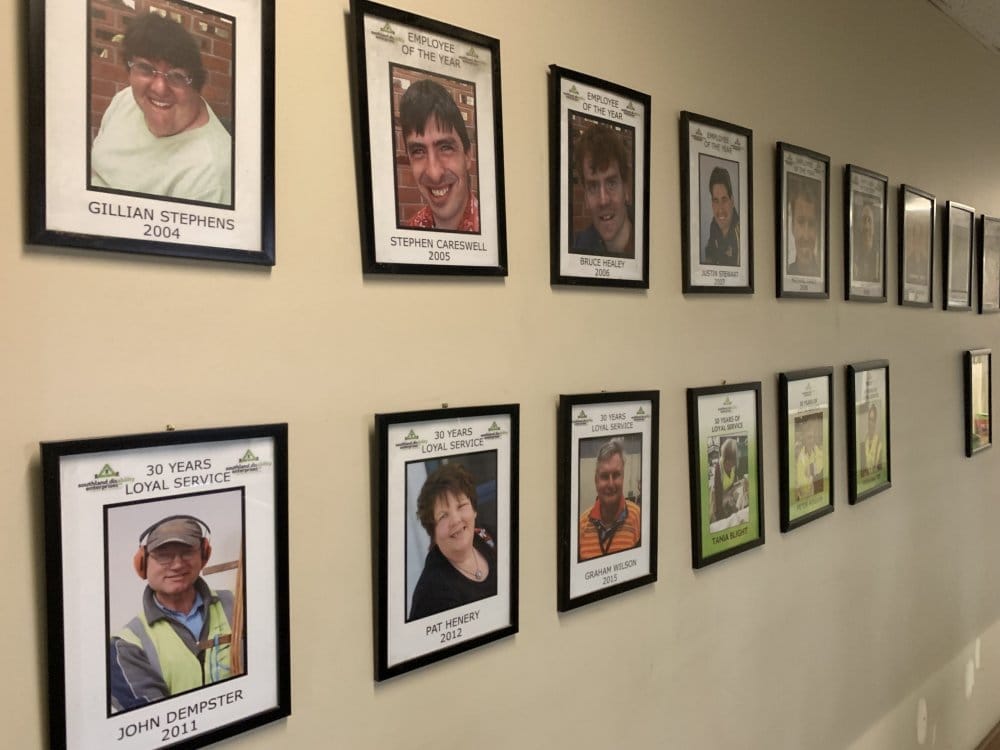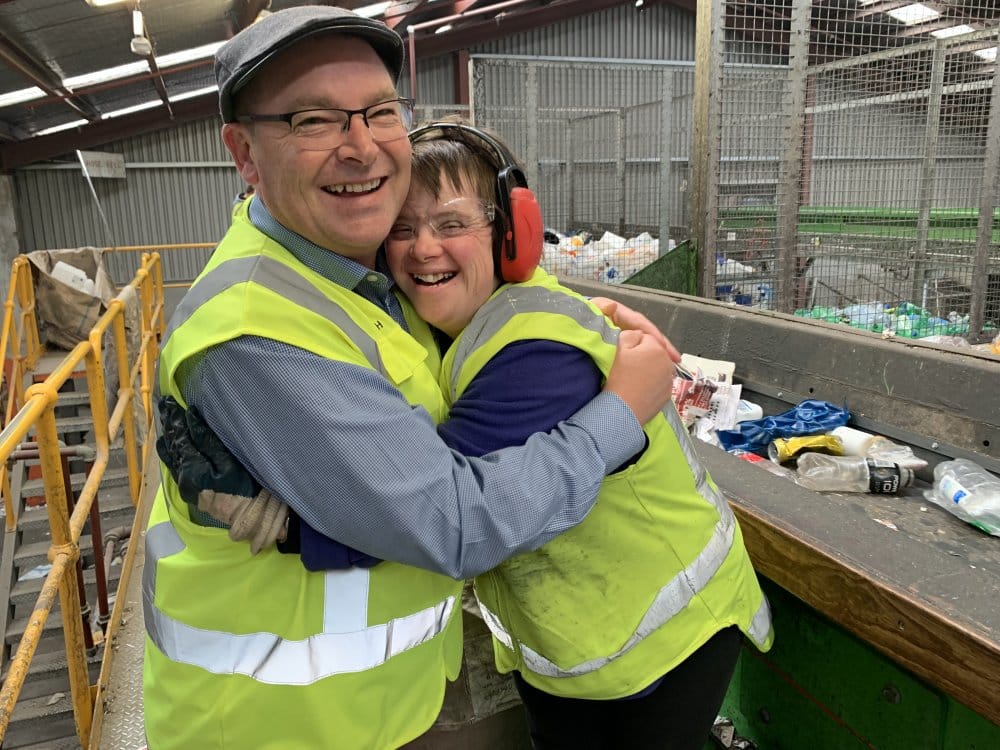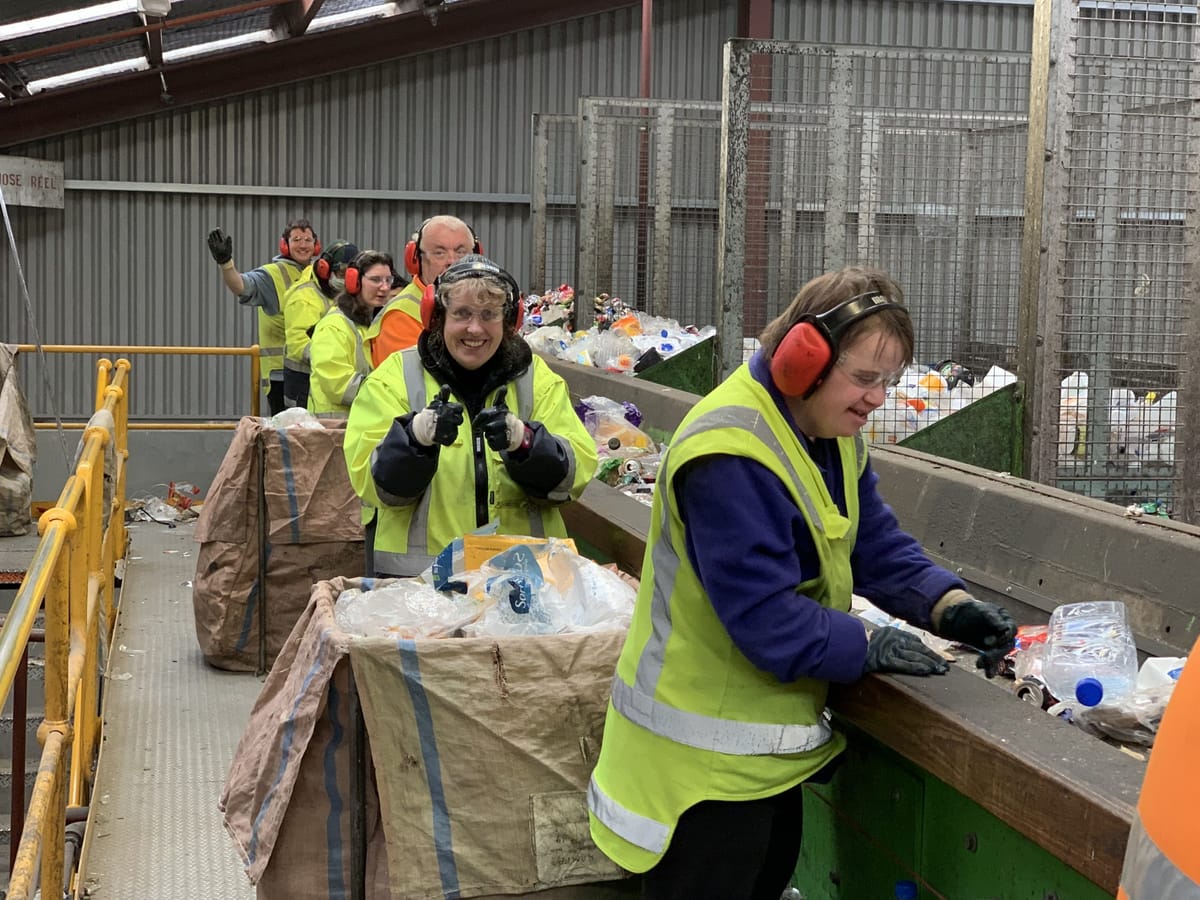The loss of its waste recycling contract would have devastating effects on Southland disAbilities Enterprises (SdE) and a financial impact on the region if it were to go to a non-
Southland provider, Southland Chamber of Commerce chief executive Sheree Carey says.
The not-for-profit company, owned by a charitable trust, which employs 82 people with disabilities, learned this month it was not the preferred tenderer for WasteNet’s region-
wide wheelie bin recycling contract.
Carey said the Chamber was throwing its full support behind SdE because it had a great
business model, a proven track record, a strong governing board and had been nominated
for multiple local and national awards.

The potential loss of the contract would have shattering effects for people working at SdE,
their families, and other people associated with the company, Carey said.
“SdE provides a caring and happy work environment and losing the contract would have a
huge psychological and financial impact on everyone associated.”
SdE has estimated the potential financial impact to the community would be $4.6m a year if workers lost their jobs.
Feedback from members in the Southland business community was strongly in support of
ensuring the contract remained within a Southland owned and operated company, Carey
said. “The ideal scenario for those holding our council contracts are Southland owned
businesses with their head offices and factories based here, employing locals”

Should the preferred contractor be accepted by the WastNet Advisory Board at the end of
May, the decision then needs to be ratified by the three councils, Carey said.
“I encourage councillors to vote with humanitarianism in mind and not base their decision
on money alone. They have a social responsibility to their community. Are any savings worth the social cost to our community?”.
This comes at a time when the Government is inserting the ‘four wellbeings’ back into the
Local Government Act, directing councils “to promote the social, economic, environmental, and cultural well-being of communities”.
Any company facing potential job losses was a big deal, but SdE’s situation was magnified
because of its unique employment make-up and would undoubtedly put the company’s
future in doubt.
There would be a knock-on effect to third party contractors SdE used, she said.
Several hundred-thousands of dollars of community funding that was used to set up SdE
could also be wasted, Carey said.
We appreciate the difficult decision that the Councils will have in front of them to balance
fiscal responsibility to the ratepayers against the social and employment needs of the
region. To assist the Council in their decision making, the Chamber will be surveying our
database to have some hard data to present to the councillors in the coming weeks.

